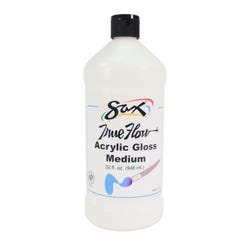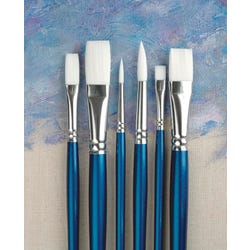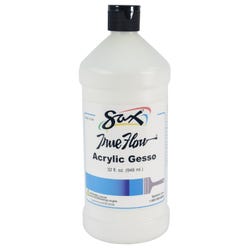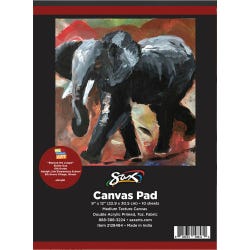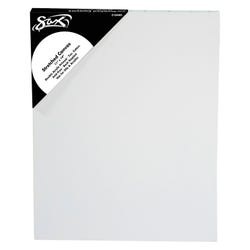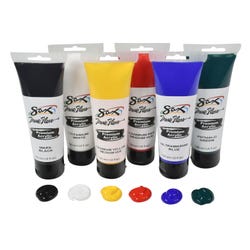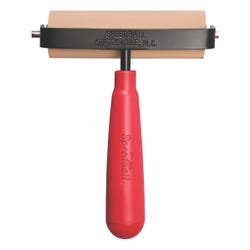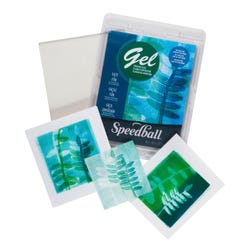Monoprint Twist on Canvas

Description
Lesson Plan and Artwork by Joe Culotta
This lesson demonstrates making simple monoprints on canvas and collaging them into a finished painting. The lesson incorporates canvas board, canvas pads, heavy bodied acrylic paint, and a gel printing plate creating collage pieces on canvas. Students can research the use of texture designs in the art of Max Ernst.
Objectives
- Research the use of texture as an art form.
- Create monoprints to be used as collage pieces, from cut canvas from canvas pads.
- Create a collage utilizing paint and mono print pieces.
Supplies Needed
Sax® Bristilina White Konex Brushes, Long Handle, Assorted Sizes, Set of 6
Sax® Premium Acrylic Paint, 4 Oz, Assorted Colors, Set of 6
Sax® Acrylic Gesso, White, Quart
Sax® Acrylic Medium, Gloss, Quart
Sax® Stretched Canvas, Double Acrylic Primed, 11 x 14”, White
Sax® Genuine Primed Canvas Pad, 9 x 12”, White, 10 Sheets/Pad
Speedball® Soft Rubber Brayer with Plastic Handle, 4”
Speedball® Gel Printing Plate, 5 x 7”
*Here are the supplies needed for this lesson plan for reference. Find a convenient carousel of shoppable products for this lesson below.
Standards
Standard #1: Generate and conceptualize artistic ideas and work.
Standard #3: Refine and complete artistic work.
Standard #5: Develop and refine artistic work for presentation.
Instructions
1
Start your work by making simple monoprints on canvas sheets. Cut shapes from monoprints and lay out design concepts for your finished piece on a piece of paper. Use this time to preplan your background, creating a balanced composition.
2
Apply paint and monoprints directly to the surface of the canvas, using your desired composition to create the background for your piece. Keep in mind the textures of the different materials should be repeated and distributed across the canvas.
3
Fix components to the background and adhere with glue. Additional textures may be created using gesso or acrylic medium.
4
Use Sax acrylic paint and glaze to color over canvas shapes.
5
Allow texture applied to the canvas to dry for at least 24 hours.
6
Paint the work with your chosen colors so that the materials are incorporated into the whole work, creating unity and cohesion.
7
Limit the choice of materials. Avoid creating disorder by using too many textures. Alternate canvas monoprint shapes with smooth overlays.
8
Ensure that the composition and collage pieces represent the basic art elements: color, form, line, shape, and texture.



